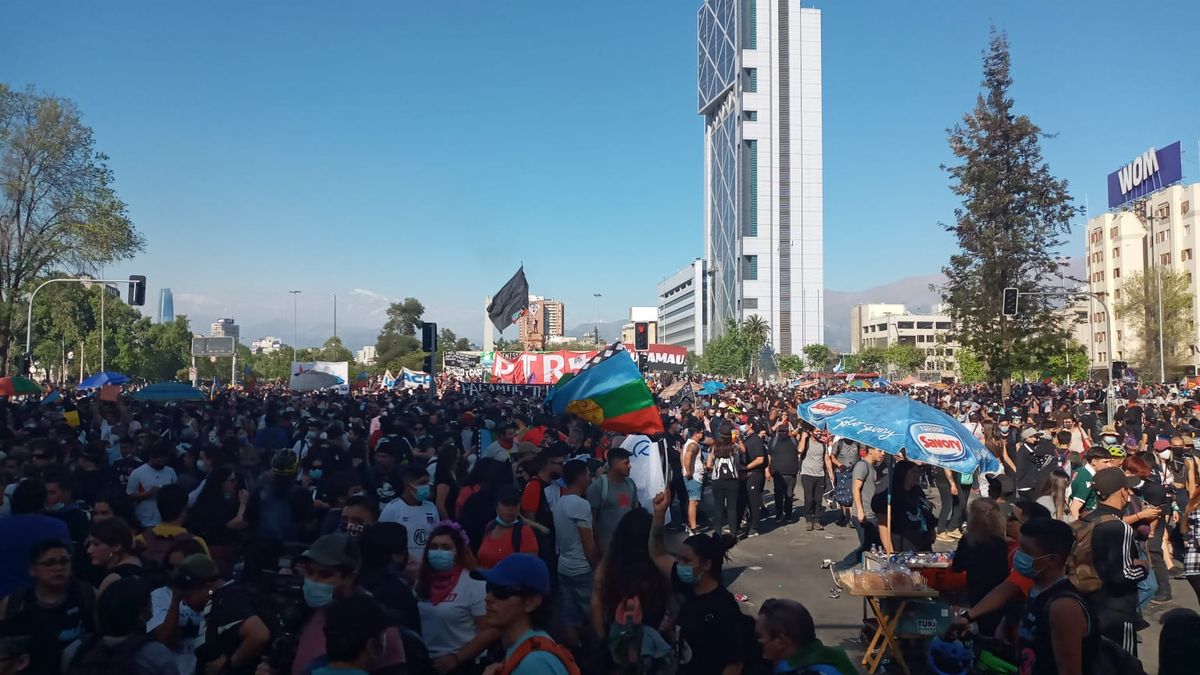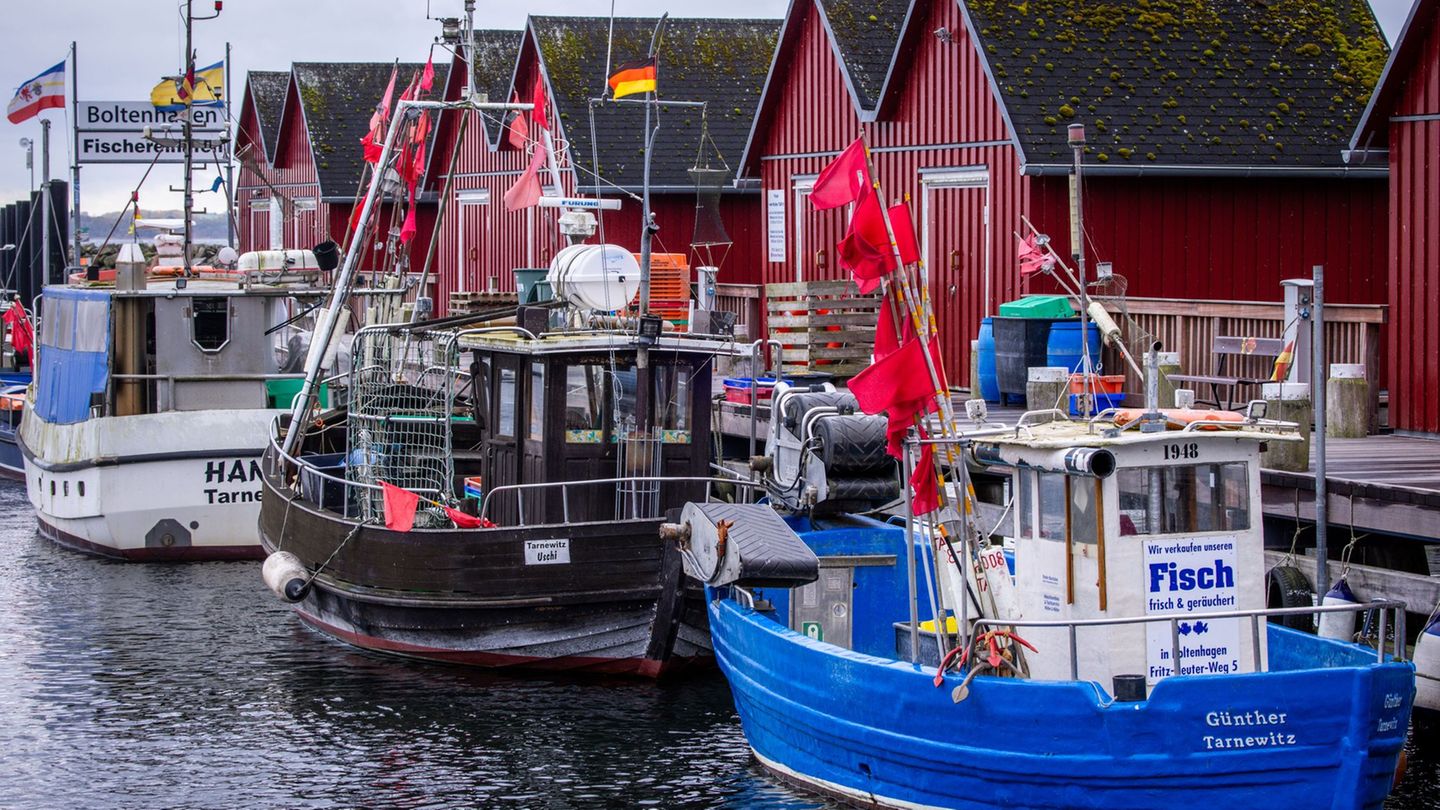In Santiago, thousands of people walked towards the central Plaza Italia, baptized by protesters as Plaza Dignidad, the epicenter of the October 2019 social outbreak that left more than 30 dead.
“Not many things have changed, but people are more awake, they are more willing to speak out”Valentina Sagredo, a 22-year-old psychopedagogy student, told AFP.
https://twitter.com/PiensaPrensa/status/1450242078936494082
While in the Alameda towards the Poniente it is a battlefield, this is the atmosphere in Plaza de la Dignidad. (20:20) pic.twitter.com/8a7HdNOj6G
– PIENSAPRENSA 280 thousand Followers (@PiensaPrensa) October 18, 2021
Pablo, a 22-year-old barber, told AFP that “there are things pending, we must advance a new Constitution, that’s why people protest.”
In anticipation of the demonstrations, Alameda, the capital’s main avenue, was closed, shops and office buildings blocked its doors with metal fences and two of the six subway lines suspended their services.
As happened since the social outbreak of October 18, 2019, the protesters, mostly young people, shouted against the government of the right-wing Sebastián Piñera as he passed by the front of the presidential Palace of La Moneda, 2 km from Plaza Italy.
On this journey groups of hooded men burned barricades, which provoked the response of special police forces, who tried to disperse them with tear gas and water trucks, reported AFP journalists. An optician and a fast food restaurant were looted in the center of Santiago, according to local media.
It is second anniversary of the “social outbreak” coincides with the beginning of the drafting of the new Constitution, a process that in November 2019 managed to channel through institutional channels the anger unleashed in the streets against a model considered unfair and the desire of a majority of the 19 million Chileans for a “new social pact”.
2019 social outbreak
During the protests, that lasted four months until the outbreak of the pandemic in March 2020, 34 people died and more than 460 people suffered eye injuries due to the action of the police.
The harsh repression of the protests led to international accusations of human rights violations against the Piñera government.
The increase in the passage of the Santiago metro had been the trigger for the first student demonstrations on October 18, 2019, but the claim was rapidly expanded against the entire Chilean economic model, criticized for favoring an elite, and a state absent in issues such as education, health and pensions, inherited from the dictatorship of Augusto Pinochet (1973-1990).
A banner hung this Monday on a walkway near the Costanera Center building, the largest skyscraper in South America, read: “The only way is the example of October.”
Commemorations
The demonstrations this Monday they commemorated what a part of the population considers the great citizen awakening after 30 years of a democracy that brought macroeconomic progress without social guarantees.
Although the authorities removed traffic lights and garbage containers near Plaza Italia to prevent them from being destroyed, a group of hooded men with sticks caused damage to the surroundings.
At least 5,000 police officers were mobilized throughout Chile to confront the protests also called in the port city of Valparaíso (center), where columns of protesters marched towards the National Congress building. In Antofagasta (north) and in the southern cities of Concepción, Chillán and Punta Arenas there were protests with slogans against the Piñera government.
Drafting of the new Constitution
The current Constitution will be replaced, if Chileans ratify it in a plebiscite next year, by a Magna Carta that is currently debating the Constitutional Convention, with 155 members, the first in the world to be equal and with 17 seats reserved for native peoples.
This Monday the Convention began to address the substantive issues that will be incorporated into the articles of the new Magna Carta, after more than 100 days dedicated to setting its internal regulations.
“Today, this convention, which is the daughter of the desires and the mobilization of the peoples, begins a dialogue awaited for decades, centuries perhaps”said the Mapuche academic Elisa Loncon, President of the Constituent Convention.
The anniversary of the social outbreak comes in the middle of the campaign for the November 21 elections in which Piñera’s successor is elected and Congress is renewed.
The new president must take office on March 11 next.
David William is a talented author who has made a name for himself in the world of writing. He is a professional author who writes on a wide range of topics, from general interest to opinion news. David is currently working as a writer at 24 hours worlds where he brings his unique perspective and in-depth research to his articles, making them both informative and engaging.




